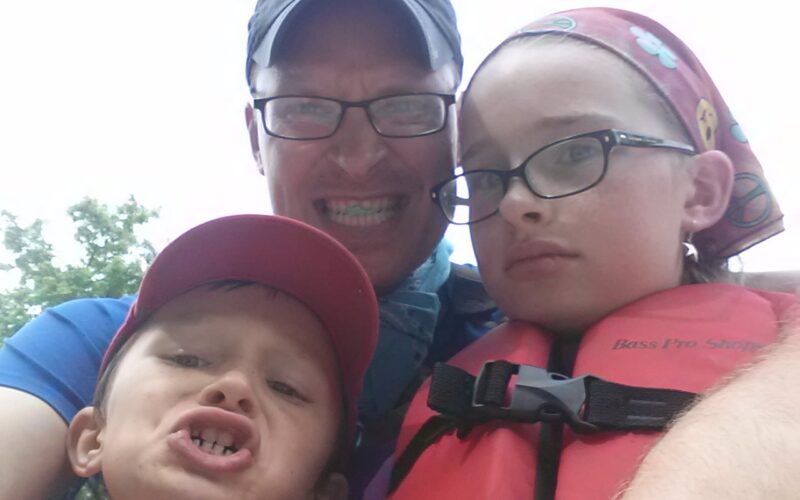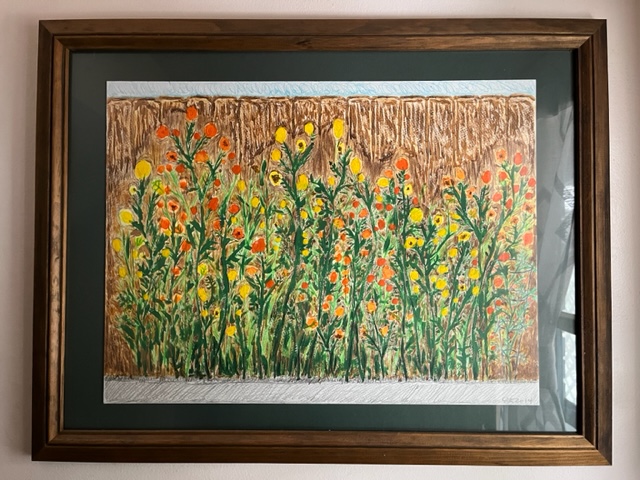HAIKAST XIV – Origin Story
I recently went on a search for my earliest recorded haiku from what I shall call the “Opening Era”. That era began with the death of my last grandparent, Amos Harlan Rippy. After his funeral on the hillside cemetery in Tell City, Indiana in 2013, I felt a commitment with an origin outside of myself to dive into my feelings and express them poetically.
Rippy and Rip were the common nicknames for my grandfather, who was called “Pop” by my siblings and me. The last name of Rippy is Irish in origin. We have records dating back to the late 1700s when the Rippy family immigrated from Ireland to Orange County, North Carolina.
Upon his death, having had 2 daughters, his surname was now locked in time as my middle name, Eric Rippy Riddle, and further honored as my son’s middle name.
While it is impossible to say the nature of the poetic calling upon my life, I do think the passing of his generation summoned in me a need to bring definition into my own emerging adulthood. Perhaps the subtle influence of the Irish ancestry beckoned an articulation of the poetic impulse. I began to call the art flowing out of me, “Openings.”
I had dabbled in poetry for years, always seeking to capture the emotions of important moments or diving into the depths of predicaments that I found myself bound. First, in the form of rhyming couplets and then in free flowing gifts to my first wife, inspired by the style of Beat generation author, Jack Kerouac.
It never really occurred to me that I was in the minority of people who choose to use language in this way. As one compelled to write on occasions of heightened awareness, desire, or emotional resonance, it seemed only natural that much of humanity would be ushered into the same necessity of poetic expression. That is not the case.
The longer form poetry that I was accustomed to writing became more difficult to conjure as I grew older. With adult responsibilities, even when I did feel the inspiration, I rarely had the time to capture the moment. I needed to lower my expectations to reignite my creative output. I chose haiku.
I began writing a daily haiku with a commitment to maintain the practice for a year. I started a Google Drive document that I could easily type on my phone. My formal haiku writing journey began on September 9, 2016.
However, in my recent research mission into writing “openings” following the death of my grandfather, I found scattered haiku that started in May 2014.
The occasion of the first haiku was a trip that I took with my then 7-year-old son and 10-year-old daughter to Red River Gorge in Kentucky. It was our first big trip together, just the 3 of us. I had started camping with friends in this part of Kentucky a few years prior and instantly found it to be one of my “happy places”.
The Red River on the day of our kayak trip was shallow. On many occasions, my kayak would bottom out. Under the much lighter weight of the kids, they even had to get out at times and drag their kayaks on the meandering stream. It wasn’t until we got to the jumping rock that we hit deep water.
That day, at that rock, became one of those moments that I knew would last forever in my memory. It holds the joy of a hot day in the growing late spring where droves of rock jumpers and observers on the beaches huddled around a deep watering hole. Jumpers waited as kayakers like the kids and me passed through. We decided to stay. My daughter found a nice spot on the beach in view of the jumping rock.
My son wanted to jump. He and I climbed to the top, feeling the communal anxiety of the 40 ft drop. Many grown adults waited as others stepped to the edge, stalled with apprehension. After watching many take the leap, my son and I made our way to the spot. We joined hands, but then he wanted me to go first. I had to wrestle my own fears to take the leap, trusting he would come after me.
And then there I was, submerged, the water deep enough to not even tickle my toes. I came to the surface and stretched out my arms. With no hesitation, Isaac jumped. My son’s youth, alive with the thrill of gravity plunging him under water for a moment. People cheered us on for his courage.
Later in the day, we camped for the first time together as a family. My daughter led the effort to build a roaring campfire on the edge of a large field, where we watched that same river winding its way past our tent. I taught the kids all the basics of camp life, profoundly grateful that I could spend this time with them, aware that I may be initiating a new tradition in our family.
That evening, as the stars basked in a clear sky, the hot embers were ready for smores. We gathered all the needed supplies and reveled in that glorious delight best reserved for moments such as this.
Haiku moments may serve as emotional images, memorable markers along life’s journey. I am thankful that my 2 original haiku capture the essence of that lovely day back in 2014. It was good to enjoy such a sweet opening and experience of fatherhood with my two beautiful children.
Water kayak you
Rock jump into waiting arms
Eight mile memory
She ate half the smore
Dark Chocolate and cracker
Marshmallow for dad



Recent Comments